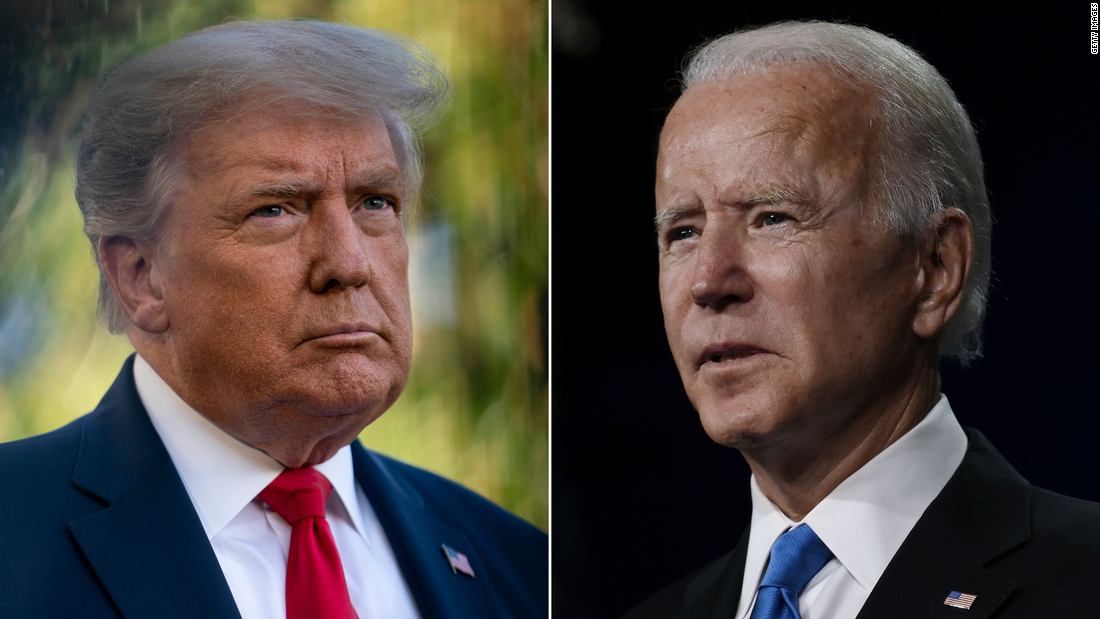The President and his predecessor are locked in an escalating clash that has profound political consequences now and into 2024
There have been occasions in US history when former presidents have sniped at and tried to undermine their successors. Many presidents have expressed private frustration with the antics of their predecessors. But nothing in the modern era matches the confrontation between the 45th and 46th Presidents.
The showdown with Biden will only fuel Trump’s attempts to turn efforts to investigate the tumultuous end to his presidency into fodder for a political comeback. He’s already making the midterms and the 2024 presidential election into a platform for his falsehoods that power was stolen from him in a rigged election. Trump and his allies have branded Biden’s refusal to cooperate with his political power grabs as evidence of a political vendetta against the ex-President.
The last thing that Biden wants, however, is yet more confrontations with his once and potentially future rival. Since winning election last year, Biden has tried to bring a fractured country together — even as Trump’s lies about election fraud and misinformation spewed by his media propagandists have only exacerbated the mood of fury among “Make America Great Again” devotees. Sometimes, the current President has referred to his predecessor as “the former guy,” not even wishing to mention his name. And the continuing tussle between Biden and Trump over documents is just one of the unfinished disputes that ensures that the poisoned legacy of the Trump presidency will linger in the United States for months and years to come.
But much as he wants to consign Trump to the past, Biden has little incentive to obstruct the work of the committee on the basis of a procedural matter like executive privilege. Accepting Trump’s claims that he is protecting the integrity of the office of the presidency would require Biden to junk his own argument that he was elected to save American democracy, which prevailed despite a severe test in the Trump years and during the presidential transition in January. And Trump, who regularly trashed decorum and the traditions of the presidency, didn’t appear too worried about protecting it in four years in the Oval Office.
But the latest escalation between Trump and Biden is also likely to further inflame the political conflagration raging ahead of Trump’s potential political comeback and even a possible 2024 presidential rematch with his successor.
Committee seeks wide range of White House documentation
The National Archives is set to start turning over documents to the House committee by November 12 — unless Trump gets a court order to halt the process. According to a letter from White House Counsel Dana Remus, “President Biden has determined that an assertion of executive privilege is not in the best interests of the United States, and therefore is not justified.”
“Accordingly, President Biden does not uphold the former President’s assertion of privilege,” Remus wrote. The House select committee has specifically asked for all White House documents and communications on January 6, such as call logs, schedules and meetings of top officials and outside advisers, including Rudy Giuliani.
The question of how far ex-presidents can assert executive privilege has not been definitively tested in the courts, which is one reason why Trump’s claims could lead to prolonged litigation and a potentially historic moment. Presidents have sometimes been open to executive privilege claims from predecessors in the apparent hope that they can expect similar courtesy when they leave office.
General practice has been that past presidents consult with the legal team in the current White House and the sitting president makes a final adjudication on the privilege claim. The privilege is considered to reside with the sitting president — not any individual who has held the post; hence Biden’s final say on Trump’s claims.
And few modern presidents have lodged such high-profile and controversial claims of privilege as Trump, who is trying to prevent the truth about the worst attack on US democracy in generations from coming out.
![]()


